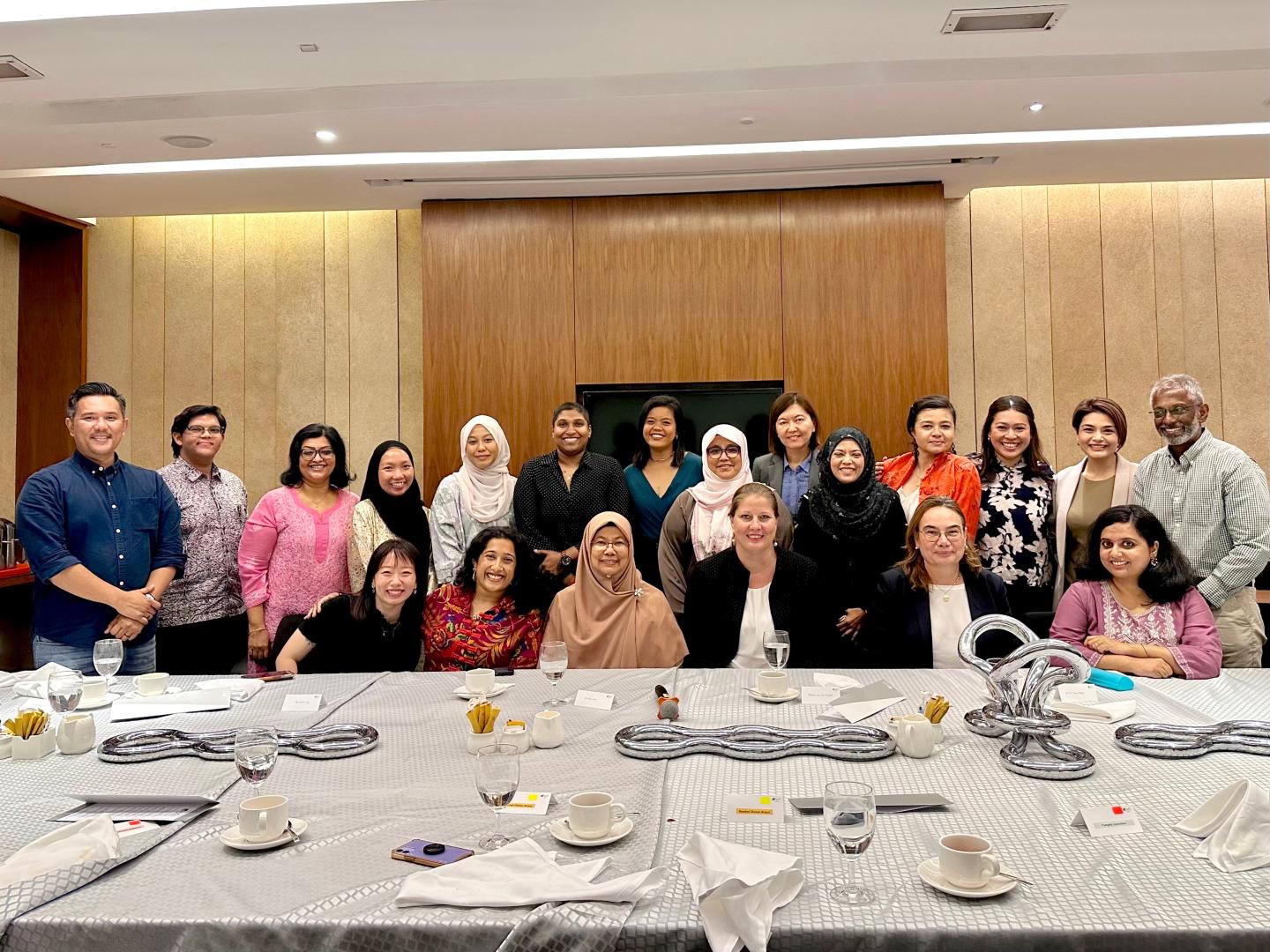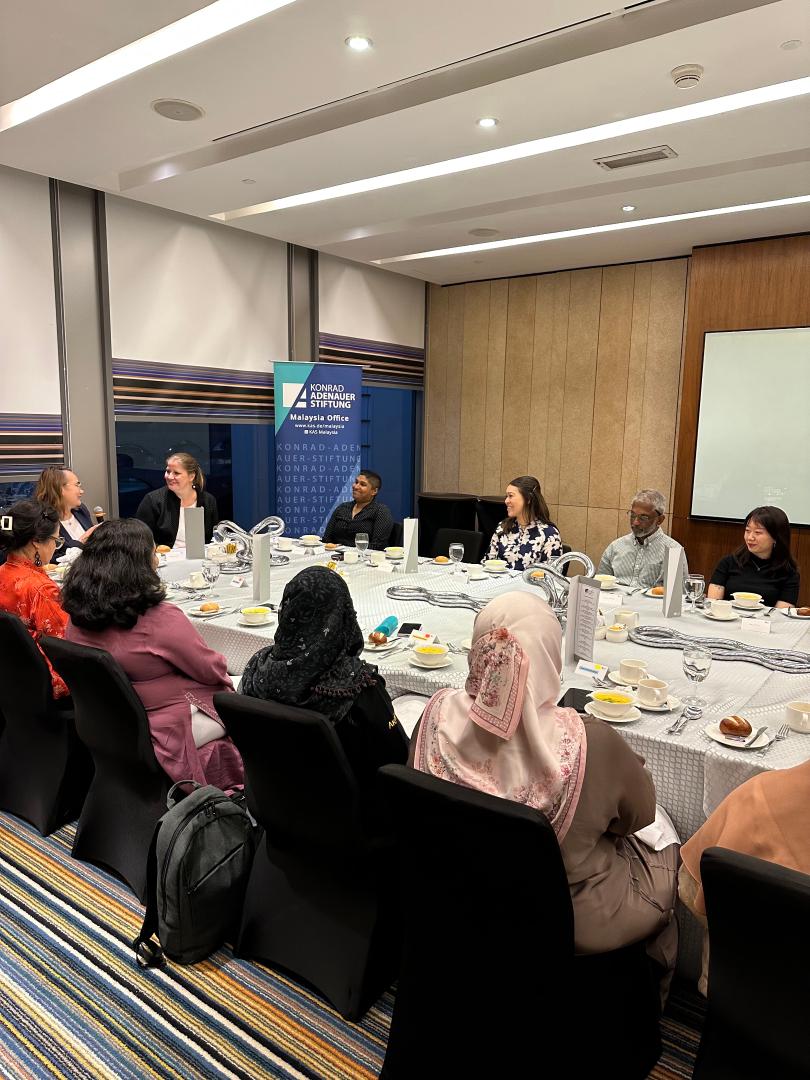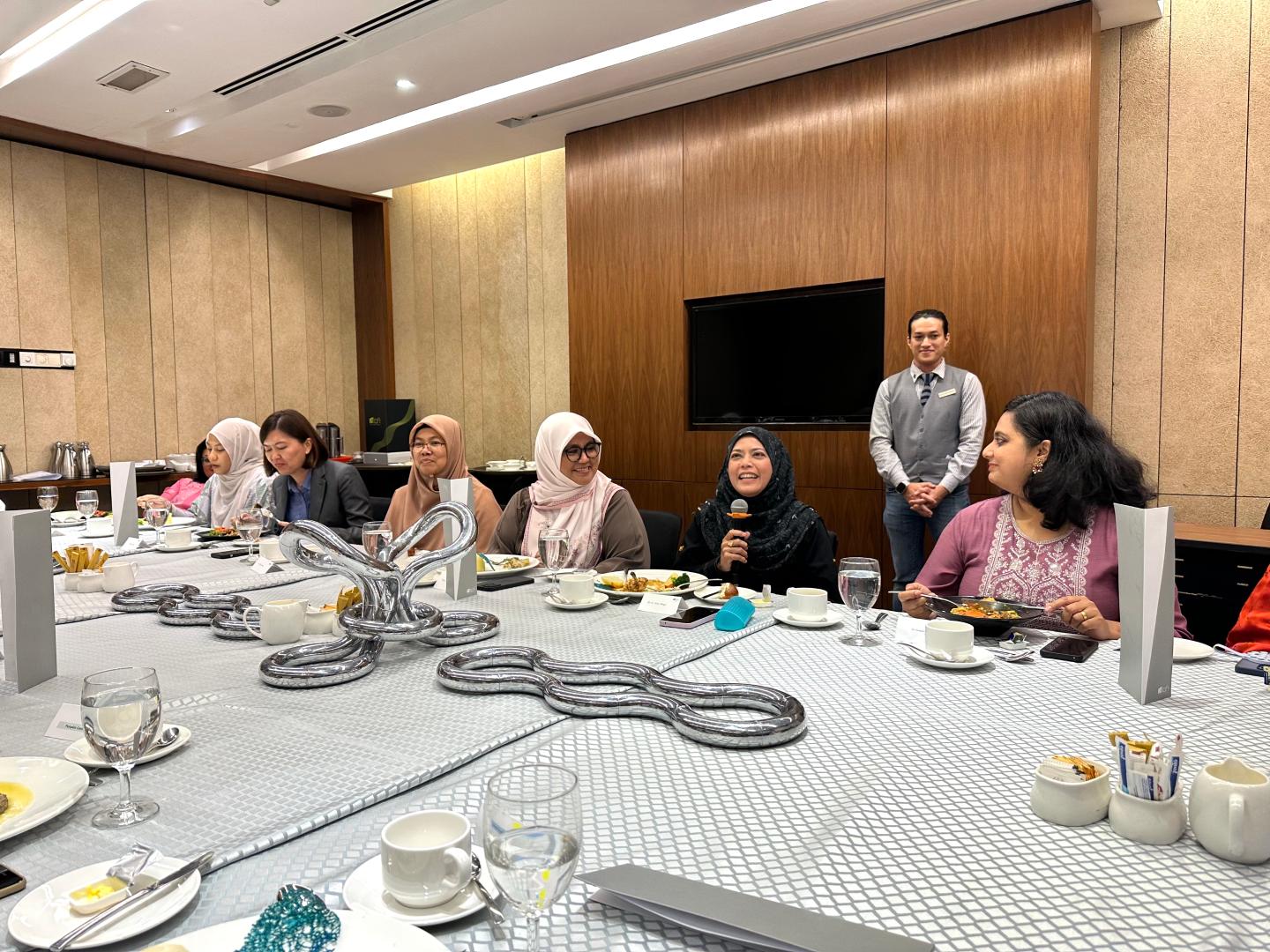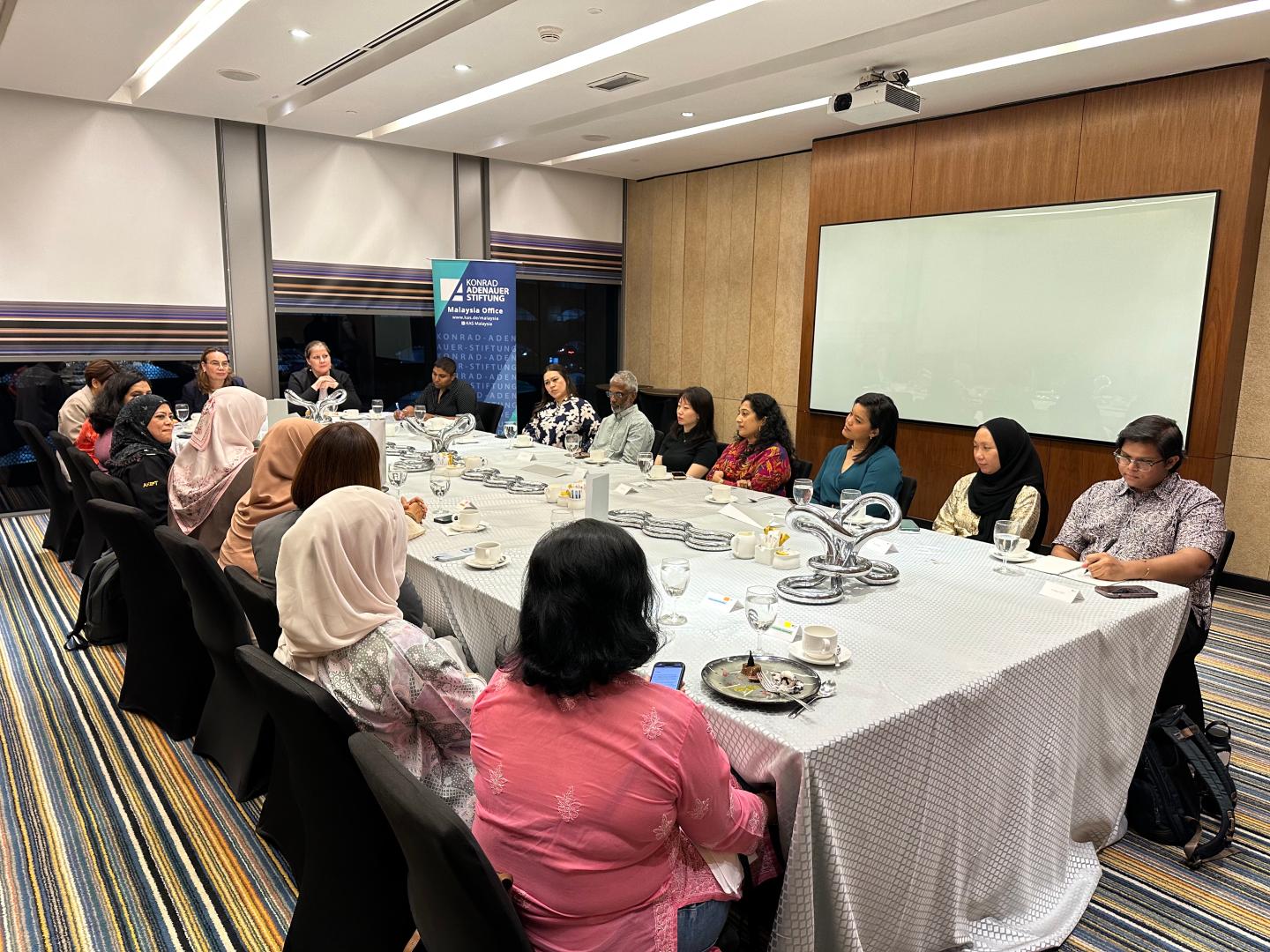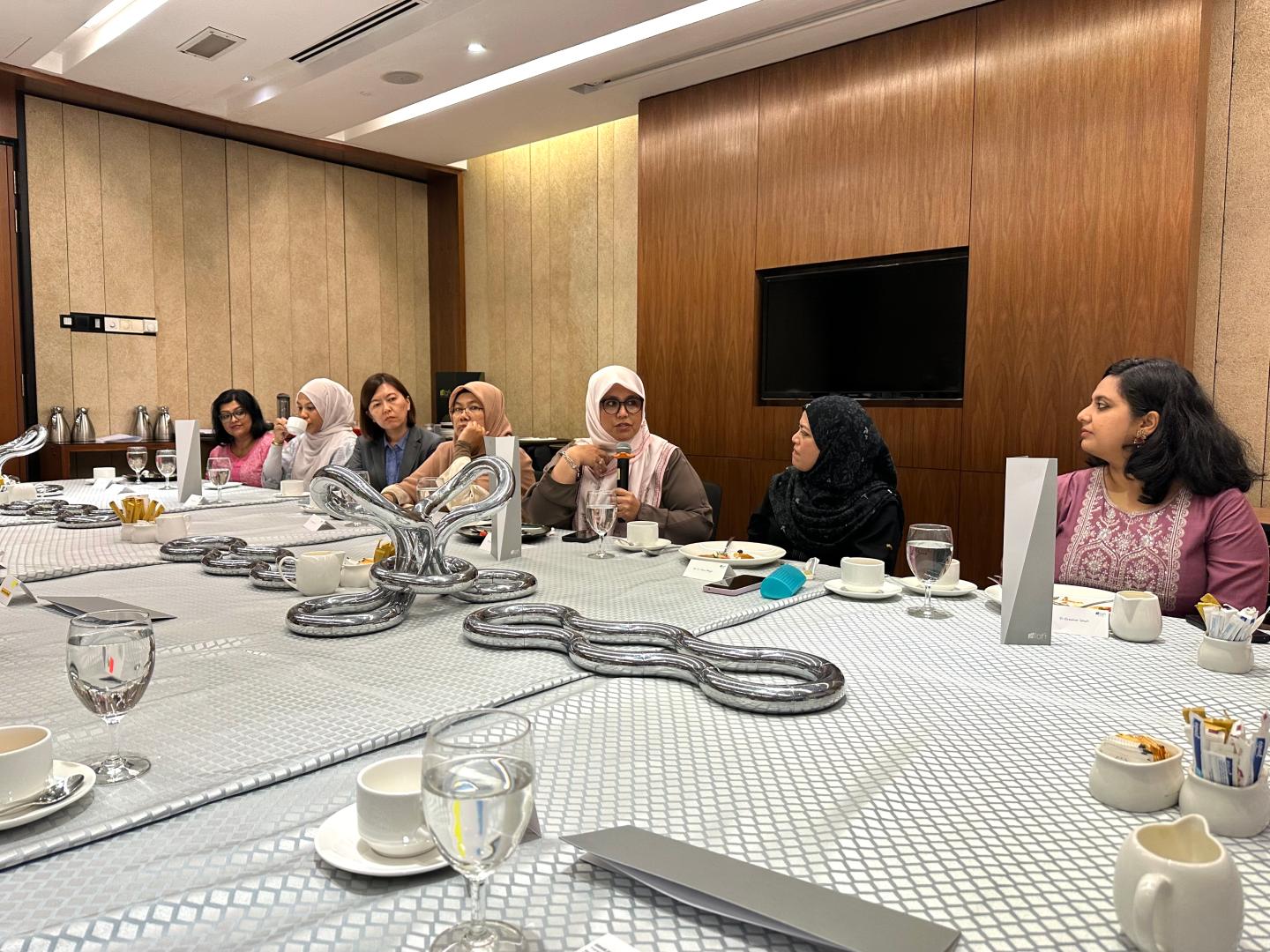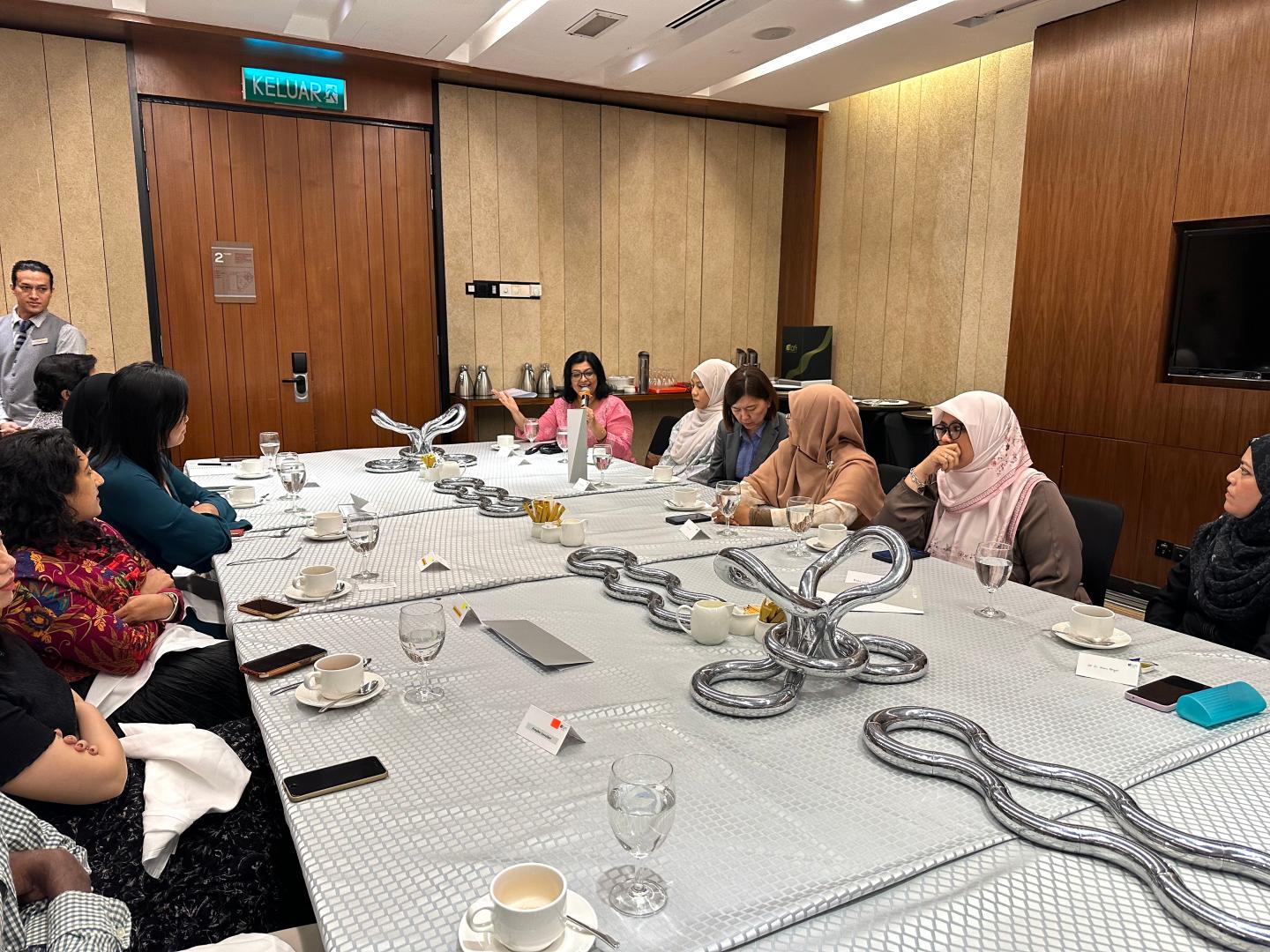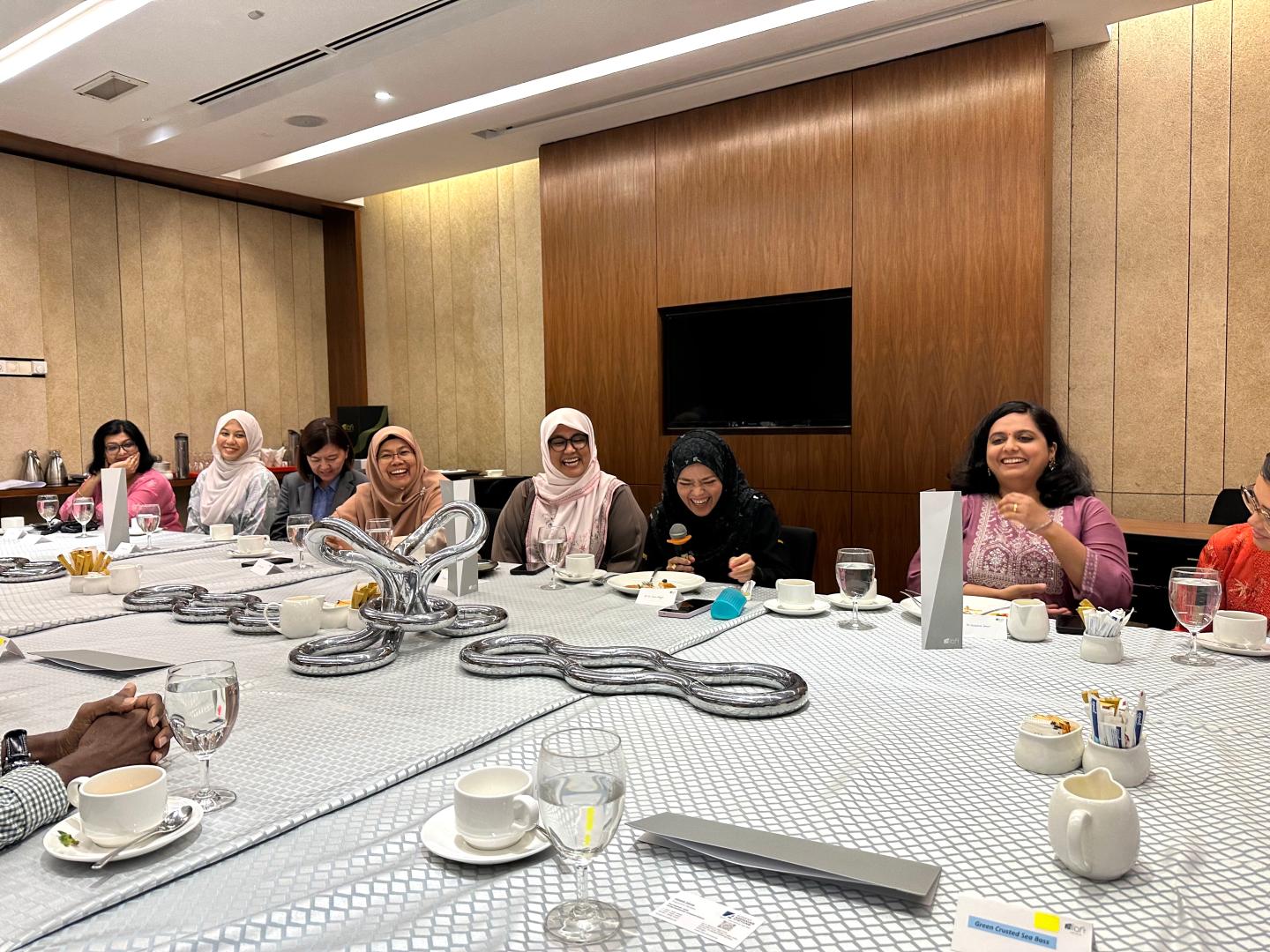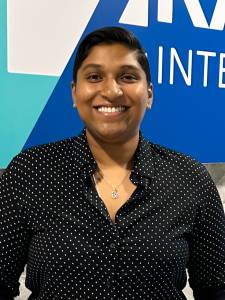On 16 April 2025, KAS Malaysia had the honour of hosting an intimate dinner with a distinguished group of individuals dedicated to advancing women’s political empowerment in Malaysia.
The evening brought together policymakers, party members, activists, researchers, academics, and journalists — all of whom are actively contributing to the effort of creating a more inclusive and representative political landscape for women leaders in the country.
The discussion was dynamic and forward-looking, with participants exchanging practical and solution-oriented ideas to better support and elevate women in political leadership. The emphasis was on actionable steps that can be taken collectively and individually to drive meaningful change.
Amongst the potential solutions put forth were:
Networking
- Politicians and policymakers need to expand their networks but often require support in engaging with stakeholders from other industries and maintaining these networks.
Allies & Awareness
- There should be more awareness for both genders on how equality can be mutually beneficial.
- Women also need greater awareness of the importance of being enablers of each other’s growth.
- There should be gender-transformative reform awareness for both men and women.
- Engagement must span multiple layers of society.
- Knowledge should be democratised to ensure that shared information is accessible in languages such as Malay, Mandarin, and Tamil as well.
Capacity Building
- Women may need support in negotiation skills and in speaking confidently.
- More education is needed on the country's political processes.
Quota
- It's essential to raise awareness that quotas are not insults to women but a necessary response to a patriarchal societal structure.
- To achieve 30% representation, we may need to push for a 50% quota.
- Quotas could also be framed differently - for example, by limiting male representation to 50%.
Party/Policy-level support
- Women often avoid or leave leadership positions due to unsupportive environments. Gender-sensitive policy changes must begin at the party level.
- A political statement on gender equality should be embedded in party constitutions, such as: “Men and women are equals in this party” .
- Advocates within the party should maintain a ready list of women candidates to propose and shortlist from.
Media
- The media must play a more active role in portraying women positively and highlighting the importance of women in leadership.
- More inclusive language should be used.
- Media outlets should ask policy-related questions to women, not only men, so voters can better appreciate the value women bring.
Monitoring & Evaluation
- Policies often go unmonitored and unevaluated, leading to waste. There should be a thorough review of past policies to assess what worked, what didn’t, and what could be improved or re-strategised.
Manifestos
- There should be consequences for unmet promises.
- Political funding laws could restrict parties or candidates who fail to deliver, while also incentivising those who do.
This dinner also marked an important transition for KAS Malaysia. We bid farewell to our outgoing Country Director, Mrs. Miriam Fischer, whose leadership, dedication, and steadfast support for gender equality have been instrumental to our work. At the same time, we were delighted to welcome Mrs. Natalie Russmann as our new Country Director. We look forward to the new perspectives and energy she brings to the role.
KAS Malaysia extends our heartfelt thanks to all attendees for their continued commitment, insights, and solidarity. Together, we remain committed to building a more inclusive future for women in Malaysian politics.



